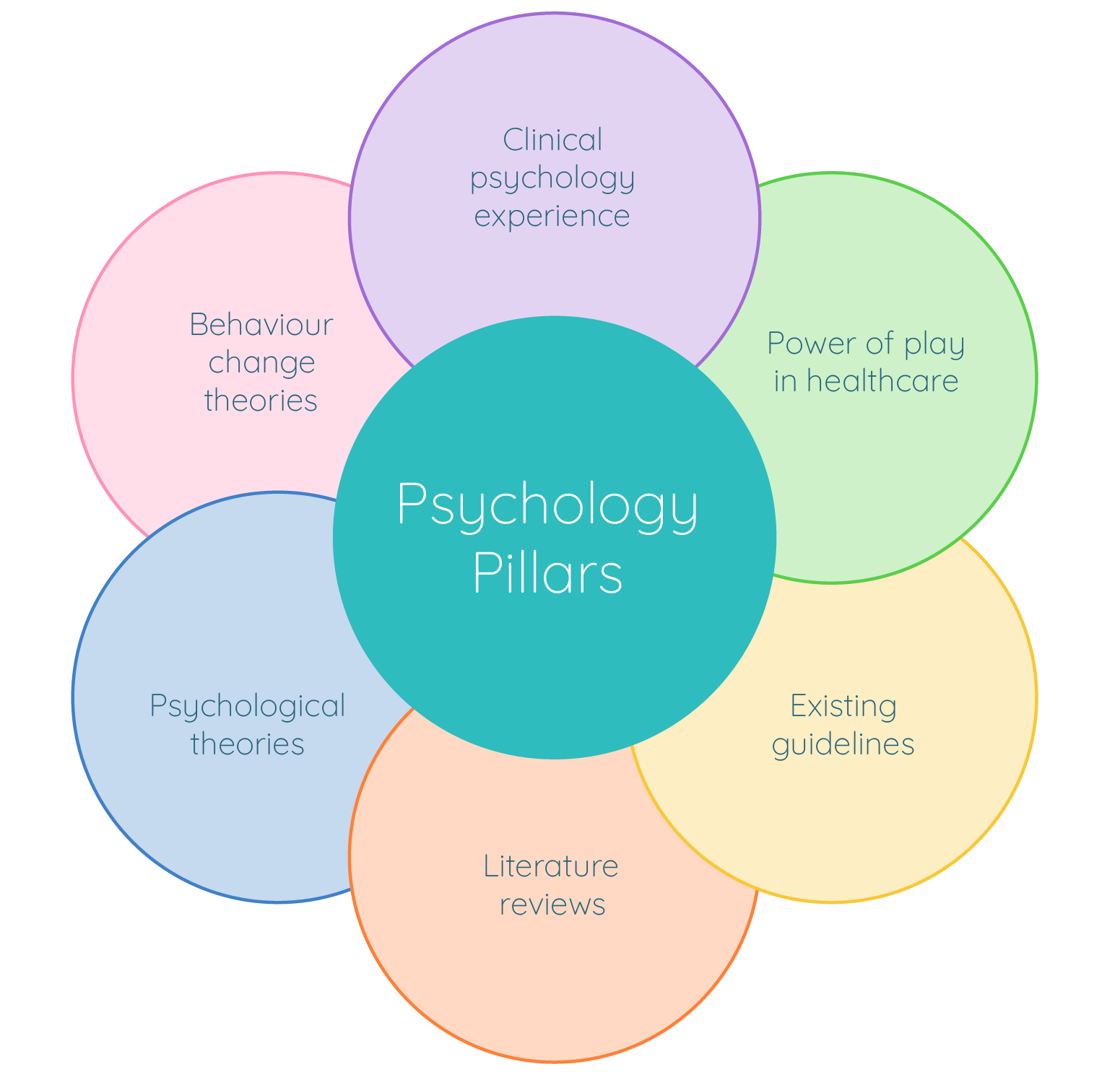The Little Journey Psychology Pillars: Guiding an evidence-based solution in paediatric healthcare

Children and families interact with healthcare systems frequently, yet up to 80% of children experience distress during appointments and procedures. These experiences can impact recovery, long-term wellbeing, and even willingness to seek healthcare in the future.
This white paper, authored by clinical psychologists Dr. Megan Hofmann and Dr. Vicky Queralt, introduces Little Journey's Psychology Pillars an evidence-based framework designed to reduce anxiety and improve readiness, trust, and outcomes.
By combining clinical expertise, behavioural science, and the power of play, the pillars provide a scalable solution to make healthcare more supportive, efficient, and child-centred.
Key Insights...
The challenge of procedural anxiety
65–80% of children experience significant anxiety during hospital visits and procedures. This distress often shows up as behavioural resistance, delays recovery, and increases costs — with long-term risks of anxiety and even healthcare avoidance in adulthood.
The need for preparation and readiness
Children who arrive unprepared are more fearful and less cooperative. Age-appropriate, engaging preparation helps them feel calmer and in control, while boosting parents’ confidence and improving attendance and outcomes.
The psychology pillars framework
The three pillars — Empowering Readiness, Supporting Emotions, and Fostering Connections — offer a simple, evidence-based framework grounded in psychology and play. They ensure care meets both emotional and practical needs.
Transforming experiences and outcomes
Families supported by the pillars are more likely to attend appointments, engage in procedures, and recover smoothly. For healthcare systems, this means fewer delays, reduced costs, and more efficient, equitable care.

Download our white paper
Download our white paper to discover how our psychology pillars can transform paediatric healthcare experiences, improving readiness, reducing anxiety, and strengthening trust between families and healthcare providers.
About the authors

Dr Vicky Queralt
Vicky is a HCPC-registered Clinical Psychologist with over 20 years of experience supporting children, young people, and families. She has particular interest in supporting individuals who are neurodivergent and/or have a physical health condition.
Vicky has a passion for working creatively with individuals. She hopes that, by working with Little Journey, she will be able to help empower others with psychological knowledge and to share strategies to support other’s emotional wellbeing when accessing healthcare.
Dr Megan Hofmann
Megan is passionate about the role of psychology in helping people living with physical health conditions. This interest was fuelled from her experiences of being diagnosed with a chronic health condition at the age of 6.
She completed an MSc in Health Psychology and after achieving her Doctorate in Clinical Psychology, decided to specialise in children’s health (paediatrics). As a mum of two, and from her own personal and professional experiences, she understands the great need for emotional support for children (and their families/carers) who are accessing healthcare.

